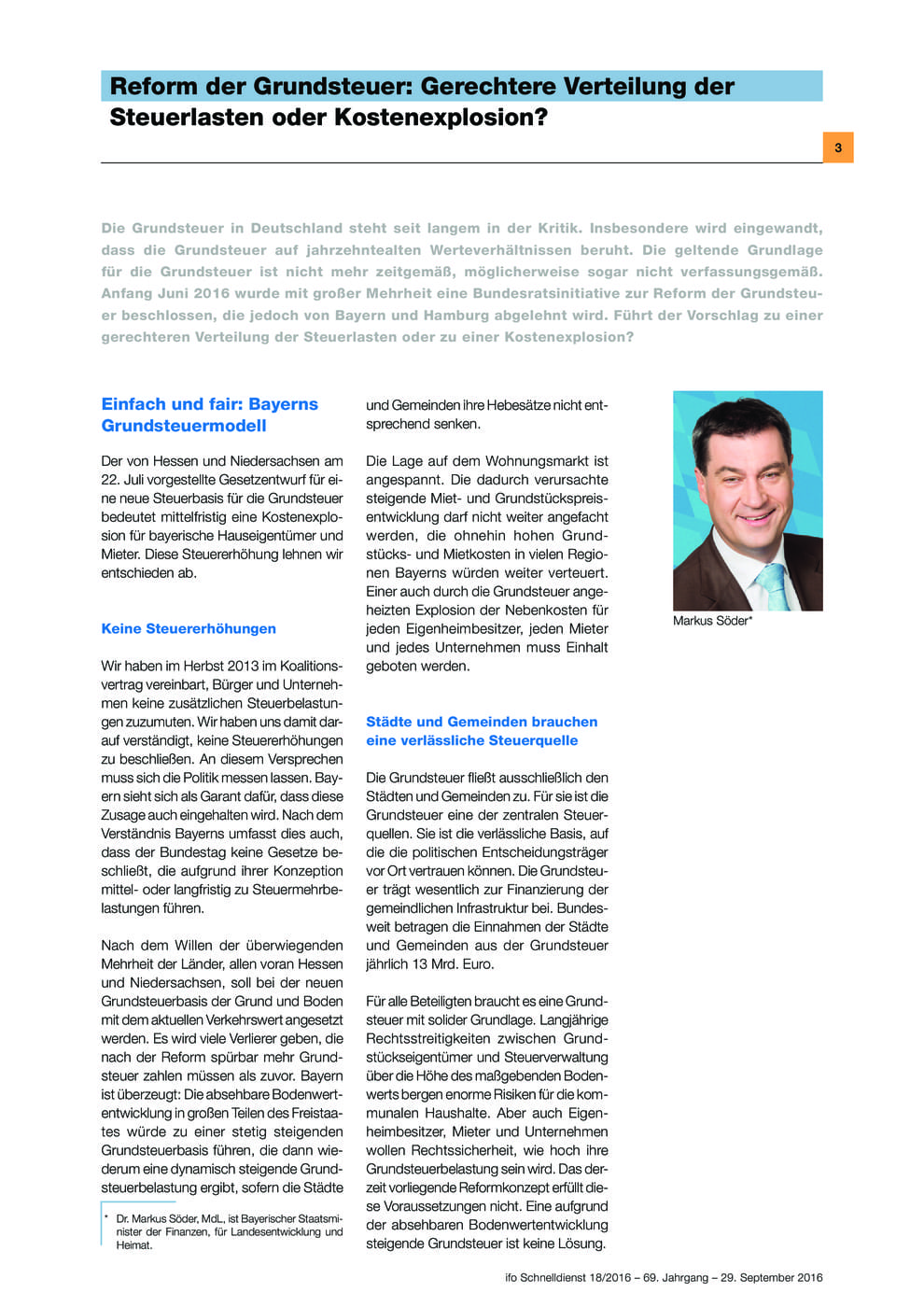Property Tax Reform: Fairer Distribution of Tax Burden or Cost Explosion?
ifo Institut, München, 2016
ifo Schnelldienst, 2016, 69, Nr. 18, 03-26

A German federal council initiative on property tax reform was approved by a large majority of German Länder, with the exception of Bavaria and Hamburg, which rejected it. Will the proposal lead to a fairer distribution of the tax burden or to a cost explosion? Markus Söder, Bavarian State Minister for Finance and State Development, fears that the draft law put forward by Hessen and Lower Saxony for a new tax basis for property tax could imply a cost explosion for Bavarian property owners and tenants. He believes that this tax increase should be rejected. For Thomas Schäfer, Hessen’s Minister of Finance, the reform is: “a question of fairness.” Wolfram Scheffler, University of Erlangen-Nuremberg, points out that the property tax reform is not only of interest due to its revenue effects on municipalities, but that even more attention should be paid to the burden on citizens. Gisela Färber, Deutsche Universität für Verwaltungswissenschaften, Speyer, also sees the long wrestling over the property tax reform by the Länder in the context of its effect on the fiscal equalisation scheme. According to Dirk Löhr, Hochschule Trier, there are alternatives to the planned change in law that are overlooked by the Länder’s legislative proposal, primarily in the form of a purely land-based property tax. For Helmut Dedy, Deutscher Städtetag, the reform model put forward satisfies all of the key demands that cities and municipalities may have of a property tax reform. From a municipal point of view, it is now a question of quickly implementing a corresponding legislative procedure. Ralph Henger and Thilo Schaefer, Institut der deutschen Wirtschaft Köln, feel that the new assessment concept is excessively elaborate, may lead to false incentives in land use and is constitutionally problematic. For Peter Tschentscher, Finance Senator of the Free and Hanseatic City of Hamburg, the reform model of the Finance Minister Conference leads to extreme property tax assessments and imposes an excessive burden on property owners and tenants in metropolitan regions.